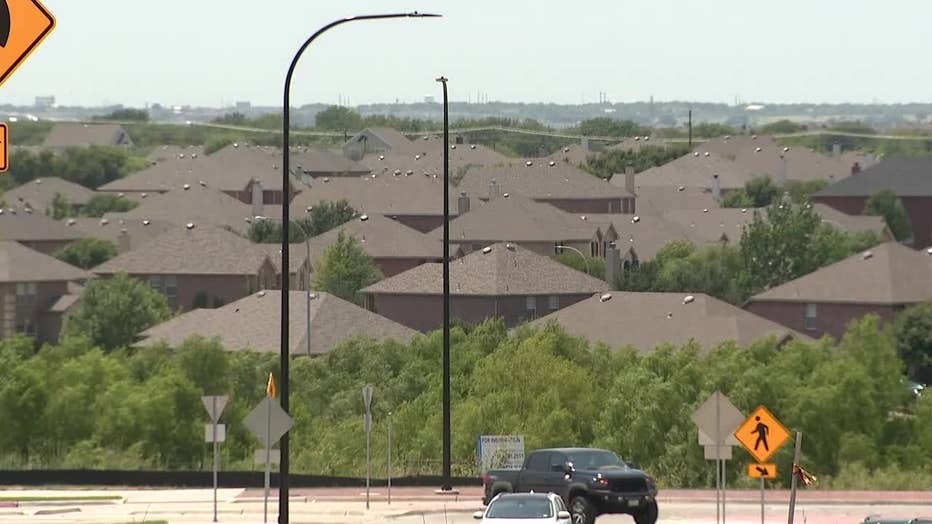Texas House considers bill raising homestead exemptions, lowering yearly tax value increases

Texas House considers bill raising homestead exemptions
The Texas House gave preliminary approval to a combination of property tax limits by raising the homestead exemption significantly and lowering the maximum yearly increase in tax value.
DALLAS - The Texas House gave preliminary approval to a combination of property tax limits by raising the homestead exemption significantly and lowering the maximum yearly increase in tax value.
That tax cap was opposed by Senate Republicans, which means there will be tough decisions to reach a compromise.
House lawmakers are touting this bill as one that would save the owner of a $350,000 home $1,300 next year and $1,500 the year after that.
House lawmakers gave resounding approval to their significantly amended version of Senate Bill 3.
Earlier, Dallas State Rep. Morgan Meyer explained one provocative measure in the bill: increasing the homestead exemption by a much larger amount than the Senate approved.

"The Senate version of SB 3 increased the mandatory homestead exemption by ISDs by $40,000-70,000. Our substitute doubles this increase to $100,000," he explained.
And on top of that, the House also amended the bill to lower the cap on appraisal increases from 10% percent now to 5%.
"These sections provide predictability and protect homeowners from the shock of rapidly rising property values," Meyer said.
It would add up to $12 billion in tax relief to property owners.
"We must take advantage of this once-in-a-lifetime opportunity of sending the largest tax cut in our state's history to the governor's desk," Meyer said.
The Senate would still have to approve the appraisal cap, a concept Lt. Gov. Dan Patrick previously considered dead on arrival in his chamber.
Dr. Lynn Krebs, a research economist with the Texas Real Estate Research Center at Texas A&M, points out that lawmakers already put a different cap in place in 2019, a 2.5% limit on revenue growth for school districts and 3.5% on cities and counties.
Those limits are designed to drive tax rates down as property values rise.
"That's really why Lt. Gov. Dan Patrick and a lot of people in the center are saying the cap idea doesn’t work because it would basically undo the benefits that we have now of getting rates compressed," Krebs said.
And another problem with capping tax values is it would put a higher tax burden on new home buyers and people who need to move.
"Generally, we look at economic policy and say we want a tax policy that doesn't influence people's, decisions on where they're going to live and what they're going to do, right," Krebs said. "Good tax policies are always neutral."
The bill calls for the state to send $12 billion to school districts to offset the cuts.
SB 3 will have a third vote in the House on Friday. Then, because the House made significant changes, it will need to go back to the Senate for approval.

